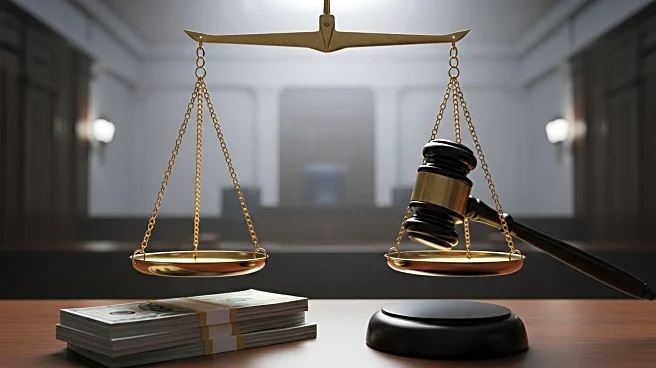What is the story about?
What's Happening?
President Trump has signed executive orders aimed at ending cashless bail, a reform that advocates argue increases public safety. The orders threaten federal funding to jurisdictions offering cashless bail and target the District of Columbia specifically. Trump blames bail reform for rising crime rates, despite data showing a decline in violent crime. Critics argue cash bail discriminates against those unable to pay, destabilizes communities, and hinders fair trials. Advocates for cashless bail cite studies showing it does not increase crime and may reduce recidivism.
Why It's Important?
The executive orders could impact jurisdictions that have implemented bail reform, potentially reversing progress made in criminal justice reform. The threat to pull federal funding may undermine state programs reliant on such funds, leading to increased correctional costs and potential legal battles. The orders reflect ongoing debates about public safety and criminal justice, with implications for how pre-trial systems operate and affect communities, particularly marginalized groups.
What's Next?
Legal challenges are likely as states and jurisdictions may resist the federal government's push to end cashless bail. The orders could lead to increased incarceration costs and affect thousands who benefit from bail reform. Advocacy groups may intensify efforts to defend cashless bail, highlighting its benefits and challenging the administration's claims. The broader impact on criminal justice policy and public safety remains uncertain.















